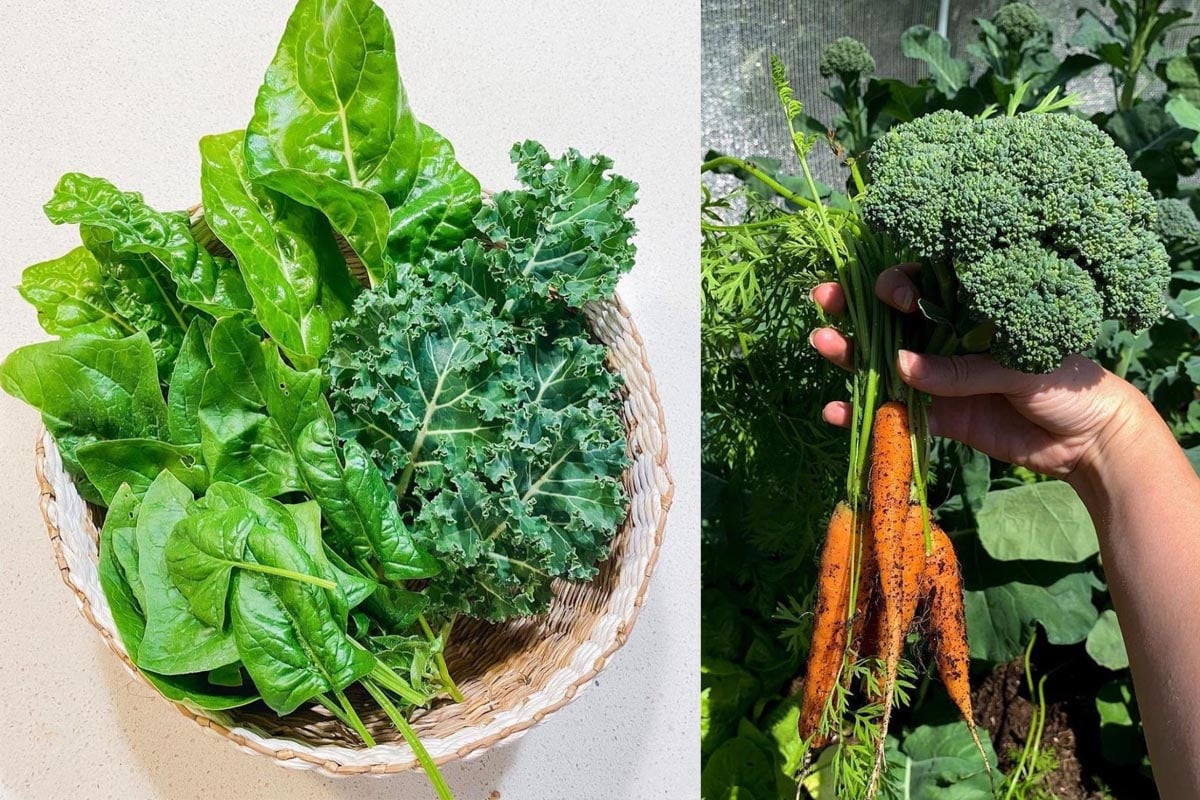
Gardening is often seen as an activity that many people come into during their twilight years. But there is a very good case for people of all ages to start picking up a trowel and some potting mix. Gardening is an activity with a number of benefits for mind, body and soul. Spending time outside, with your fingers in the earth and watching a living thing emerge from what is seemingly nothing has a way of helping to put life in perspective. Plus, it doubles as exercise.
As such, we're all for everyone growing their own flowers, and fruits and vegetables. But it's not just us, there are some very sound reasons why it's so beneficial. For example, did you know the microbes in soil can elevate serotonin? To find out more about just what kinds of benefits we might see from getting our hands dirty - and to for a beginners guide on what to grow - we spoke to Simon Holloway, co-owner of Vegepod. He told us about getting started, how to grow things in apartment settings and the most rewarding plants to start with.
Do you think there is a link between gardening and wellbeing?
Not think, know! Every culture on the planet has confirmed engagement and results from wellbeing gardening for
thousands of years. Therapeutic gardening in all its forms – physical, mental and spiritual - has not only been practiced and enjoyed for millennia but also been documented and scientifically proven around the globe. Besides, every single gardener will attest to this link.
Would you say there are mental health benefits to gardening, in addition to the obvious physical ones?
Yes, there are many mental health benefits and yes, the serotonin release caused by the soil microbes which pass through your skin is scientifically proven. I read about that years ago and it’s a rather interesting little fact which I think just helps reinforces the broader wonder of science behind therapeutic gardening. But don’t actually need to focus or rely on scientific research on such chemical catalysts. The therapy or ‘mental health benefits’ as you put it, encompass a range of beautiful activities and undeniable effects from gardening.
Even on a simplistic level you can see how a healthy state of mind is derived from these gardening experiences - being outside and immersed in nature for decent periods of time, being kissed by the elements (sun, wind, rain etc), getting in touch with one’s wider environment, the seasons and the cycle of life – even when one isn’t fully conscious of it, caring for another living thing, nurturing a thing of beauty (and taste) to enjoy over time and to share the above enjoyment with friends and loved ones
What sorts of other benefits can edible gardening offer?
Edible gardening is a very quick bridge to enjoying cooking and healthy eating at home. Organic food is not only healthier, it tastes so much better! Furthermore, there is a plethora of benefits from edible gardening that every sector of society is now realising. This includes occupational therapy (simply moving your body to garden), community bonding, defying depression and providing spiritual hope, better understanding about the processes of earning our food and last but not least, helping to save the planet one veggie patch at a time. For example, thousands of our Vegepods are not only ordered for everyday backyards but for elder care, schools, daycares, hospitals, disability spaces, correctional facilities, rehabs, refuges and community housing.
If you're a beginner, how can you get started?
Don’t be afraid to give at least one plant a try. It’s not hard and advice is at hand. Our Vegepod staff can answer questions or local garden centre staff are also there to help. We recommend getting a low maintenance “no dig” garden bed like a Vegepod initially. Self-watering wicking beds like Vegepods are also good for novices because they take the guesswork out of watering, keeps pests and harsh weather out, and are always clean because they are contained.
What are some of the easiest (and most rewarding) things to grow?
The heroes of veg gardening that are both easy and crowd favourites are tommies, spinach, rocket, chillies and
lettuce.
How can you grow things in a small space like a balcony? And what plants work best in a small space?
You need both a fully contained bed (so it doesn’t leak soil around the place, especially with strata concerns) and are raised quite high so as to reach the sun above a balcony wall, just like the Vegepods. If you need to optimise small balcony spaces at times then mobility is key too, so use a Vegepod trolley or similar. If you are in shady spot, then you can still find shade lovers like mint, parsley and some other hardy culinary herbs.
Do you have any tips for growing food and herbs?
The two biggest areas people fail on is good sun and good soil. For demanding fruits and roots you need plenty of direct sunlight and you also need the premium grade potting mixes. Don’t scrimp and get cheap soil! Our website has more general advice around this.
What's something more people should know about edible gardening?
Not only is it fun, tasty, rewarding and one of the best activities in the world, it also saves the planet. As Eric
Toensmeier (lead consultant for Obama’s Project Draw-Down’ and author of ‘The Carbon Farming Solution’) said, “The number one thing anybody can do to help save the planet and reduce emissions, the absolute gold standard, is to grow your food”.
Images: vegepod one, vegepod two



